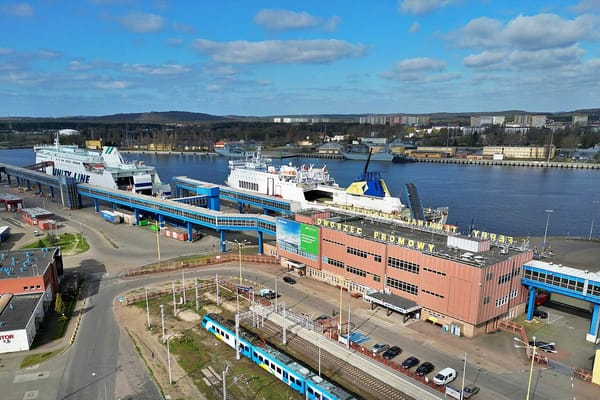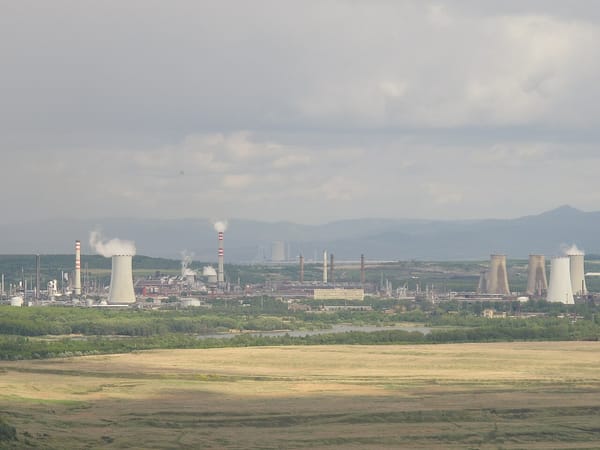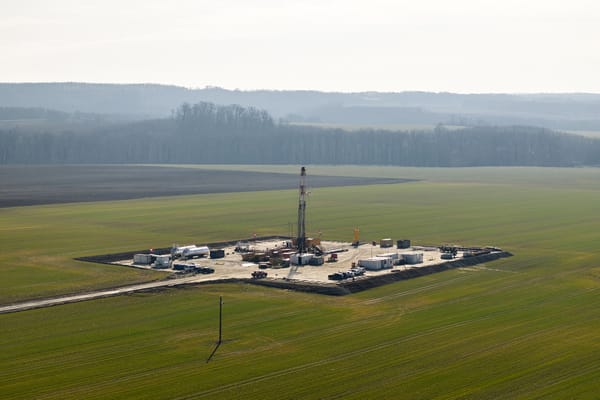
Hungary, Slovakia urge EC to stop Ukrainian attacks on Russian oil pipeline
Hungary and Slovakia asked the European Commission (EC) on 22 August to act following a third Ukrainian strike on the Druzhba (Friendship) oil pipeline, which halted flows of Russian oil to both countries for at least five days.
Ukrainian drones have struck at least 10 key Russian energy facilities this month alone, according to US news channel CNN. Attacks on 12, 17 and 21-22 August all targeted the Druzhba pipeline’s southern leg. If it were a rail line, Druzhba would now be considered a regular wartime target.
Szijjarto bemoans energy security hit
Hungarian Foreign Minister Peter Szijjarto called the drone attack on the Unecha pumping station in Bryansk, west Russia, "another strike on our country’s energy security". Slovak Foreign Minister Juraj Blanar said "the safe supply of our countries is simply not possible" without the pipeline being operational.
The two countries sent a joint appeal to the EC, arguing that continued attacks on the pipeline infrastructure threaten their national security and economic stability. Druzhba, which dates from the 1960s, supplies Russian oil through Ukraine to Hungary, Slovakia and Czechia.
The EU banned Russian seaborne oil in 2022 but made an exception for Druzhba, allowing Hungary and Slovakia to keep importing oil via the same pipeline the Soviets built to tie them to Moscow.
Ukraine has almost no domestic oil production or exports, but its geography gives it enormous strategic leverage over others’ energy security, especially during war. Authorities in Ukraine have not officially confirmed responsibility for the strike on Unecha, although Kyiv-based sources said Security Service of Ukraine (SBU) drones carried out the attack.
Oil reserves should suffice - EC
The EC responded to the calls from Hungary and Slovakia by stating that EU members are required to maintain 90-day emergency oil reserves, and that the disruption does not pose a risk to the bloc's overall energy security. Energy traders cited by Reuters and Euronews said the disruption may last around five days.
Previous attacks on Druzhba infrastructure have already disrupted regional flows, with Kyiv increasingly targeting Russian energy logistics in territory bordering Ukraine, US business daily The Wall Street Journal wrote on 19 August. The strikes form part of a wider strategy to impair Russian war logistics, although this represents the first time Hungary and Slovakia have publicly pushed back.
Hungary has maintained long-term oil and gas deals with Russian state companies, including Rosatom and Gazprom, despite EU calls to diversify. Hungarian Prime Minister Viktor Orban has also voiced opposition to sanctions on Russian energy, and warned against “dragging Hungary into war”.
The Slovnaft refinery in Bratislava, west Slovakia, which supplies most of the country’s fuel, gets 100% of its crude from Druzhba. Like Orban, Slovak Prime Minister Robert Fico's government, has also taken a Moscow-friendly stance, advocating for the easing of sanctions and closer bilateral energy cooperation.
Trump reacts to letter from 'great friend' Orban
Orban took the unusual step of writing to US President Donald Trump in a letter published by pro-government Hungarian daily Magyar Nemzet: "This pipeline supplies Hungary and Slovakia, two countries that have no other means of importing crude oil. Hungary supports Ukraine with electricity and petrol, and in return they bomb the pipeline that supplies us. A very unfriendly move! We wish President Trump every success in his pursuit for peace," Orban wrote.
Trump replied: "Viktor, I do not like hearing this - I am very angry about this. Tell Slovakia that you are my great friend."
Ukrainian President Volodymyr Zelenskyy had taken a swipe at Orban earlier in the week, as Budapest was discussed as a potential host for peace talks between Russia and Ukraine, saying he preferred a “neutral” European country instead.
Zelenskyy asked Trump to persuade Orban not block Ukraine’s EU accession. "I believe it is absolutely fair that Ukraine wants to join the EU. As far as I understand, the relevant signals from the White House will be sent to Budapest," he said. "President Trump promised that his team would work on it," Zelenskyy said.
Attacks test limits of EU energy solidarity
Central and Eastern Europe (CEE) energy analysts said future attacks could further destabilise EU cohesion on energy, as Ukraine tests the limits of support from member states reliant on Russian imports. Although Hungary and Slovakia have received EU funds for energy diversification, both remain dependent on Druzhba flows due to a lack of viable short-term alternatives.
The Druzhba pipeline is one of the longest in the world, stretching over 4,000 km from Russia’s oilfields to CEE refineries. The southern branch, which passes through Ukraine, is particularly exposed to sabotage. The strikes mark the third disruption to the pipeline in August alone.
The incident also highlights the broader challenge facing EU energy strategy, as national interests collide with the bloc’s long-term goal of ending Russian fossil fuel dependence by 2027. For now, Hungary and Slovakia appear intent on defending a legacy infrastructure that Brussels is preparing to abandon.





